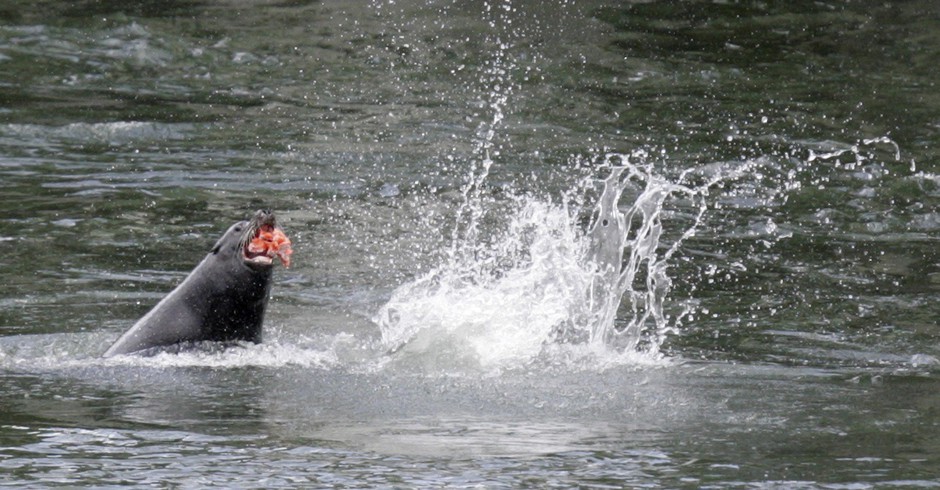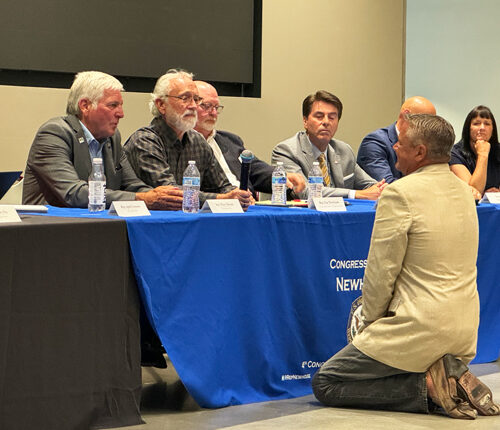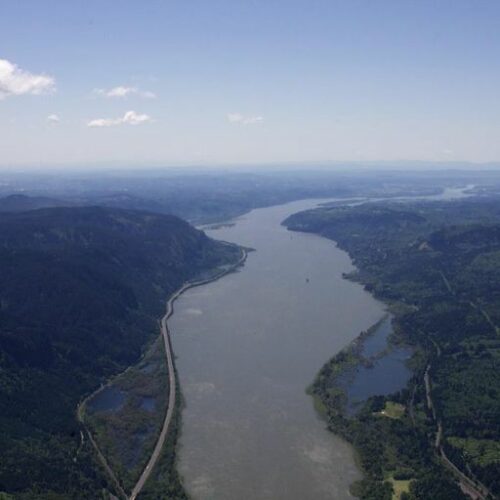
U.S. House Bill OKs Killing Sea Lions To Protect Columbia River Salmon
The legislation was co-sponsored by Reps. Jaime Herrera Beutler, R-Wash., and Kurt Schrader, D-Ore.
“What we currently have on the Columbia River is an ecosystem seriously out of balance,” said Herrera Beutler, who believes the bill is necessary to save fish runs on the brink of extinction.
“Our salmon runs are now fighting for survival. It’s practically a miracle when a fish can make it upstream without getting caught between a sea lion’s teeth,” she added.
The bill, which passed by a vote of 288-116, eases protections on sea lions currently in place under the U.S. Marine Mammals Protection Act of 1972. Through these conservation efforts, populations of California sea lions have rebounded to nearly 300,000.
Now, many of them are moving beyond the mouth of the Columbia River and are gorging on salmon farther upstream at Bonneville Dam and Willamette Falls.
“This is what cuddly sea lions do to our iconic salmon in the Columbia River,” said Schrader, standing beside a large photo of several salmon that had been slashed to pieces.
Schrader said the legislation would streamline the process to euthanize sea lions, something he said is currently a laborious and bureaucratic process. The bill would allow federal agencies to issue kill permits to wildlife managers and Northwest tribes. The orders would be limited to no more than 100 California and Stellar sea lions.
Both Oregon and Washington have been using non-lethal methods to try and deter salmon predation. Tribal members use firecracker explosions to haze the animals away from the Bonneville Dam. At Willamette Falls, Oregon Department of Fish and Wildlife officials also trucked sea lions hundreds of miles away to an area on the Oregon coast. Those efforts ended up being futile, as the sea lions returned five days later.
According to the bill, the percentage of spring salmon eaten or killed by sea lions at the Bonneville Dam alone has increased sevenfold since 2002. And in Oregon, the Willamette River steelhead runs are facing a 90 percent chance of extinction due to predation.
“We’re not anti-sea lion. We’re just for protecting our native fish, a Pacific Northwest icon,” Herrera Beutler said. “In order to do that, we’ve got to make it easier to remove some of the most egregious offenders, these problematic pinnipeds.”
The bill has rankled some Democrats and animal-rights advocates, who believe sea lions are scapegoats for bigger issues. They point to other threats to salmon this bill would not address, including climate change, hydropower dams and fish hatcheries.
“The killing of sea lions is not a silver bullet for a salmon recovery,” said Congressman Raúl Grijalva, D-Ariz., who spoke in opposition of the proposal. “This bill is a 5-cent solution to a $10 problem.”
A companion bill to lethally remove sea lions, introduced by U.S. Sens. Jim Risch, R-Idaho, and Maria Cantwell, D-Wash., is also working its way through the U.S. Senate.
Copyright 2018 Earthfix
Related Stories:

Tri-Cities forum draws support for Lower Snake River dams
At a Lower Snake River dams forum in the Tri-Cities, Chuck Bender, who said his family members are tugboat operators, fell to his knees in front of U.S. Rep. Dan

‘Fish War’ documentary highlights tribal leaders’ fight
From left to right, Charles Atkinson, Jeff Ostenson, Mary Big Bull-Lewis and Twa-le Abrahamson answer questions from the crowd after the film “Fish War.” (Credit: Reneé Dìaz / NWPB) Listen

Preliminary agreement reached for a modernized Columbia River Treaty
The Columbia River west of the Gorge as it heads toward Portland and out to the Pacific Ocean. (Credit: Amelia Templeton / OPB) Listen (Runtime 1:01) Read After more than















